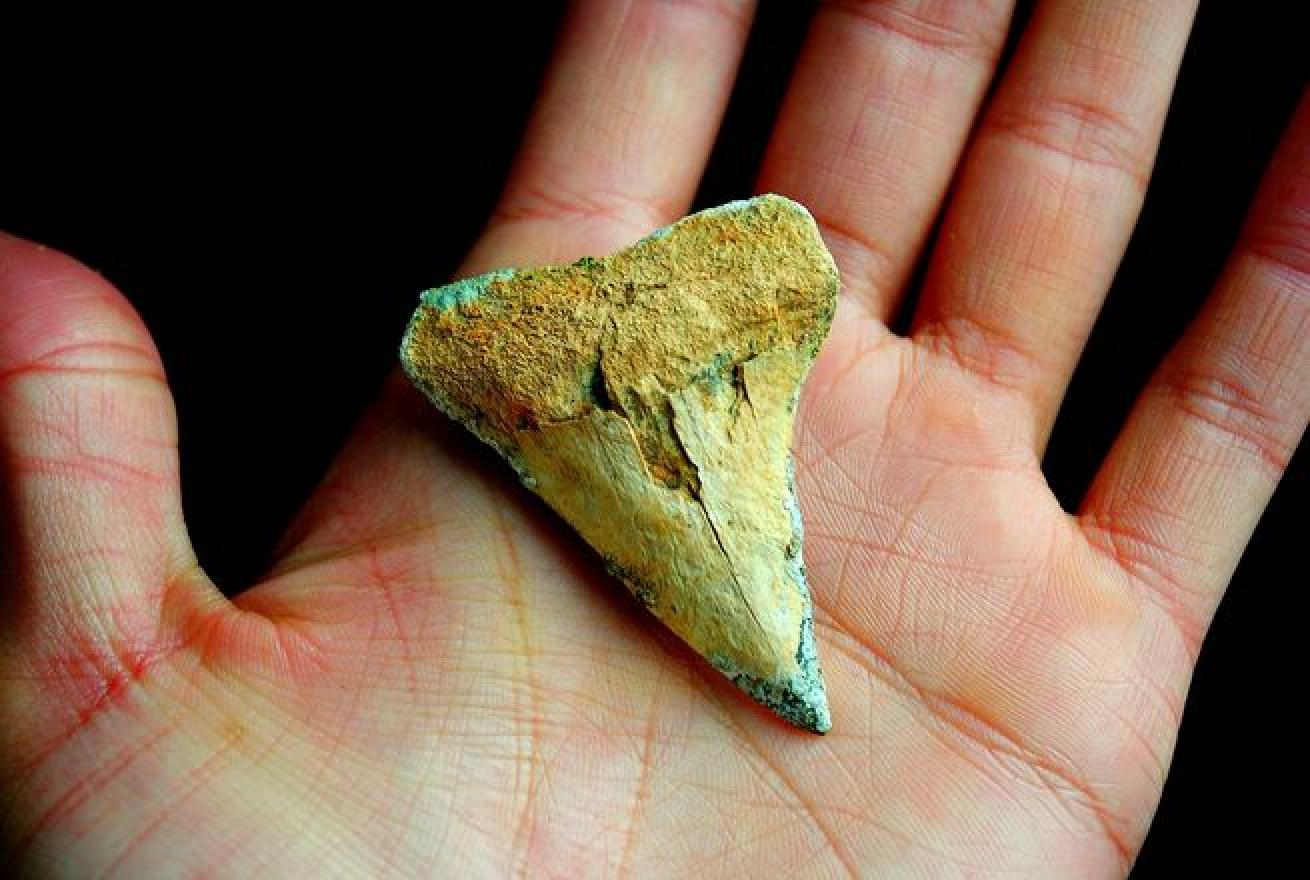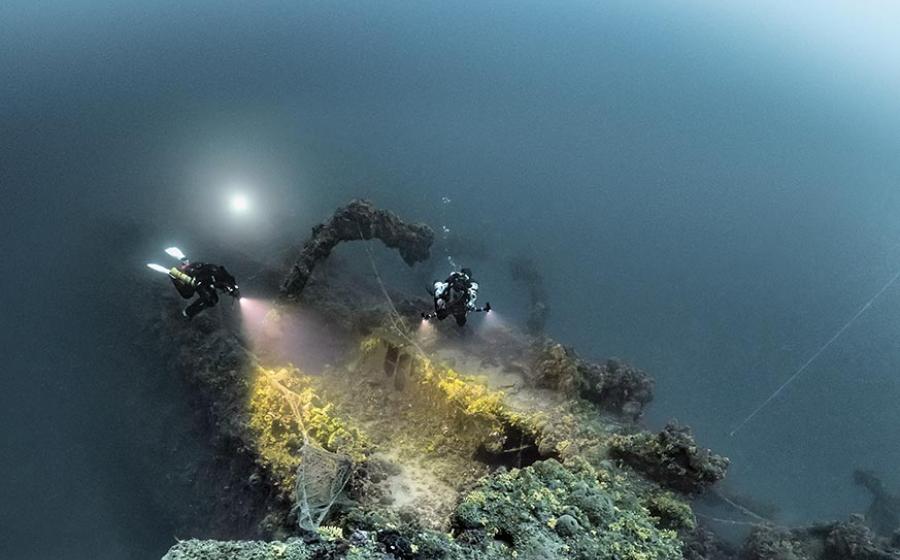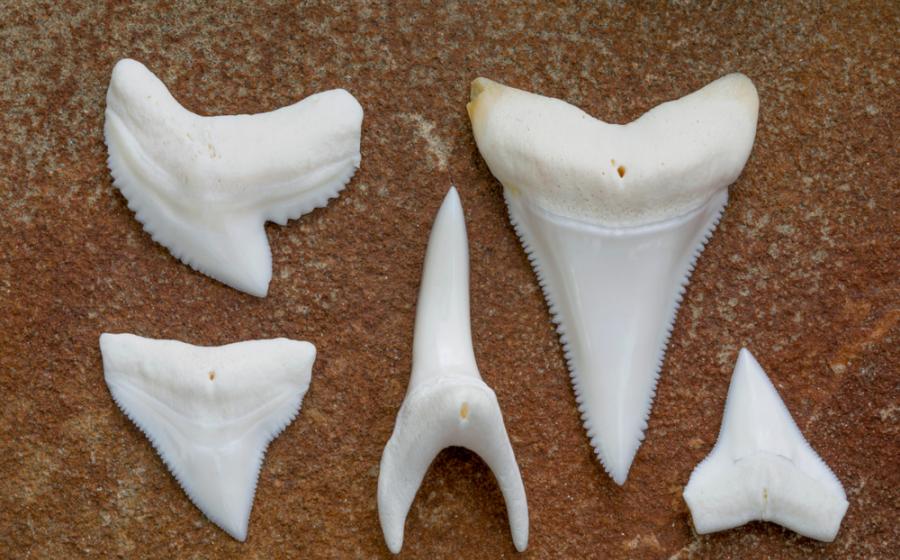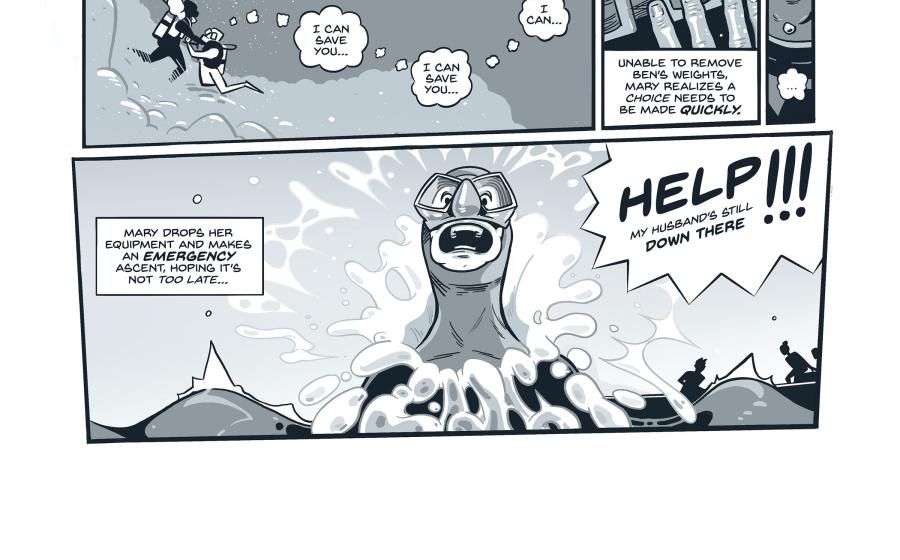Do Sharks Have Bones?
Question: Do sharks have bones?

Shutterstock/Rita MerakiA fossilized shark tooth.
Answer: Nope, the skeletons of sharks and their relatives are made out of cartilage.
Did you ever wonder why there are tons of fossilized shark teeth, but few fossilized shark skeletons? There’s a simple explanation: Unlike humans and most other vertebrate animals, sharks and their relatives don’t have skeletons that are made of bone. Their skeletons are instead made of cartilage, the same stuff your nose and ears are made of—it’s less dense and more flexible, but it doesn’t typically fossilize as well as bone because it doesn’t mineralize as much. In fact, this difference is one of the main things that separate sharks and their relatives, called class Chondrichthyes (“cartilage fish”) from the other fishes, called class Osteichthyes (“bony fishes”).
Related Reading: Exploring California's Diving and Wine Scene
So what exactly is cartilage, and how is it different from bone? You can demonstrate the difference on your own body! Try to bend your arm at a point about halfway between your wrist and your elbow. Hopefully, you can’t. Bone, what our skeletons are made of, is pretty rigid. Now crinkle your ears, and crinkle your nose. That’s cartilage, and as you can see it is much more flexible!
Some parts of the shark’s skeleton have denser cartilage than others, especially shark vertebrae (which do sometimes fossilize). Not all cartilage is the same. Different parts of a shark’s skeleton can have very different types of cartilage with different structure and function. But the whole skeleton, including the jaws, is made of cartilage. Shark “skulls” are called chondrocraniums. You’ll recognize the root word chondro from my earlier mention of Chondrichthyes—these too are made of cartilage. (Humans have a chondrocranium early in our development, but it gets replaced by a skull made of bone as we grow.)
Related Reading: Patagonia Dreams: Up Close With Puerto Madryn’s Eclectic Marine Life
What about shark teeth? Well, like our teeth, shark teeth are made of a tissue called dentin (“dentine” for our British readers), which is calcified. This stronger, denser tissue tends to fossilize very well. Incidentally, a question I’m often asked at my public talks is if those shark tooth necklaces you can get in tourist curio shops around the world represent a conservation threat for sharks. They don’t; many are made from fossilized teeth of long-dead sharks—white teeth are usually from a recently dead shark, while darker teeth are usually fossilized. And the dermal denticles (“skin teeth”) that sharks have instead of true scales are very toothlike and can fossilize.
So no, sharks do not have bones.
Ask a Marine Biologist is a monthly column where Dr. David Shiffman answers your questions about the underwater world. Topics are chosen from reader-submitted queries as well as data from common internet searches. If you have a question you’d like answered in a future Ask a Marine Biologist column, or if you have a question about the answer given in this column, email Shiffman at [email protected] with subject line “Ask a marine biologist.”

Courtesy David ShiffmanImage of David Shiffman
Dr. David Shiffman is a marine conservation biologist specializing in the ecology and conservation of sharks. An award-winning public science educator, David has spoken to thousands of people around the world about marine biology and conservation and has bylines with the Washington Post, Scientific American, New Scientist, Gizmodo and more. Follow him on @WhySharksMatter on Twitter, Facebook and Instagram, where he’s always happy to answer any questions about sharks.
The views expressed in this article are those of David Shiffman, and not necessarily the views Scuba Diving magazine.










